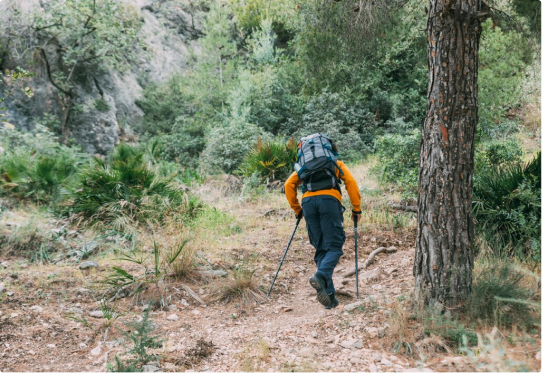
The Indian Forest Service (IFoS) is a prestigious Civil Service in India that specifically deals with the management and conservation of the country's forests and wildlife. As part of the larger Civil Services Examination conducted by the Union Public Service Commission (UPSC), the IFoS holds a unique position, focusing exclusively on environmental and forestry issues critical to India's ecological balance and biodiversity.
India is one of the first countries in the world to have stated scientific management of its forests. In 1864, the then British India Government started the Imperial Forest Department and appointed Dr. Dietrich Brandis, a German Forest officer Inspector General of Forests in 1866. To manage the varied natural resources of the vast country and to organise the affairs of the Imperial Forest Department, Imperial Forest Service was constituted in 1867.
Till 1805, the officers appointed to the Imperial Forest Service were trained in France and Germany, then in London till 1905 and at the Universities of Oxford, Cambridge and Edinburgh until 1926. It was in 1938 when the Indian Forest College (IFC) was established at DehraDun to train the Superior Forest Service by the provinces/states.
However, the subject of "Forestry" (managed by the Federal Government), was transferred to the "Provincial List" by the Government of India Act, 1935 and subsequently recruitment to the Imperial Forest Service was discontinued.
The Indian Forest Service, one of the three All India Services (the other two being the Indian Administrative Service, IAS & the Indian Police Service, IPS), was constituted in the year 1966 under the All India Services Act, 1951 by the Government of India. The Ministry of Environment, Forest and Climate Change (MoEF&CC) is the Cadre Controlling Authority for the Indian Forest Service (IFS).



After completing professional training in forestry and related subjects at the Indira Gandhi National Forest Academy in Dehradun, followed by a Foundation Course at the Lal Bahadur Shastri National Academy of Administration (LBSNAA) in Mussoorie, Indian Forest Service probationers undergo one year of practical training within their allotted cadre.
After completing the four-year probation period from the Year of Allotment, successful officers are appointed to the Senior Time Scale. At this stage, they can be assigned roles such as Divisional Forest Officers or Deputy Conservators of Forests overseeing Forest Divisions.
| Posts | Scale of Pay (in Rs) | Pay Level |
|---|---|---|
| Principal Chief Conservator of Forests (Head of Forestry) | 225000 | Level-17 |
| Principal Chief Conservator of Forests | 205400-224400 | Level-16 |
| Additional Principal Chief Conservator of Forests | 182200-224100 | Level-15 |
| Chief Conservator of Forests | 144200-218200 | Level-14 |
| Conservator of Forests | 131100-216600 | Level-13A |
| Deputy Conservator of Forests (Selection Grade) | 118500-214100 | Level-13 |
| (Junior Administrative Grade) | 78800-209200 | Level-12 |
| (Senior Time Scale) | 67700-208700 | Level-11 |
| (Junior Time Scale) | 56100-177500 | Level-10 |
The online application form for Indian Forest Service is the same as the one for Civil Services Examination (using the website https://upsconline.nic.in), subject to meeting the requisite eligibility criteria by them.

| Upper age relaxation available for | |
|---|---|
| PwBDs (including low vision, Partially deaf and locomotor disability - leprosy cured and acid attack victims only) | Up to 10 years of Age |
| SC/ST Candidates, ex-servicemen who rendered at least five years Military Service | Up to 5 years of Age |
| OBC Candidates, Defence Service personnel disabled in certain operations | Up to 3 years of Age |

| Number of Attempts for the Indian Forest Service Exam | |
|---|---|
| Category | No. of Attempts |
| General | 6 |
| SC/ST Candidates (including PwBD from same categories) | No Limit |
| OBC | 9 |
| PwBD Candidate (belonging to General, EWS and OBC) | 9 |
| Paper | Subject | Marks |
|---|---|---|
| Paper I | General English | 300 |
| Paper II | General Knowledge | 300 |
| Paper III & IV (Optional 1) | Any One subject selected from the list of the optional subjects | 200 (each) |
| Paper V & VI (Optional 2) | Any One subject selected from the list of the optional subjects | 200 (each) |

The interview carries 300 marks with no minimum qualifying marks. Marks thus obtained by candidate (only)
in the Main Examination (written part as well as interview) determines their final ranking.
Part A-Preliminary Examination:
Paper I (200 Marks | Duration: 2 hours)
Paper II (200 Marks | Duration: 2 hours)
The standard of papers in General English and General Knowledge will be as may be expected of a Science or Engineering graduate of an Indian University. The scope of the syllabus for optional subject papers for the examination is broadly of the honours degree level i.e. a level higher than the bachelors degree and lower than the master's degree. In the case of engineering subjects, the level corresponds to the bachelor's degree. There will be no practical examination in any of the subjects.

General English (Paper I):
General Knowledge (Paper II):
Optional Subjects (Papers III, IV, V and VI):


